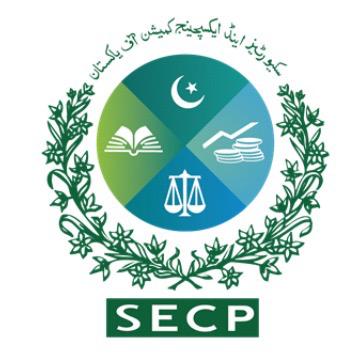Regulatory arrogance triggering legal crisis
Investor distrust grows as uncertainty grips market
Staff Report
ISLAMABAD: Pakistan’s top financial regulator, the Securities and Exchange Commission of Pakistan (SECP), is once again at the centre of controversy as it faces contempt of court proceedings for defying judicial orders, a move that has not only embarrassed the institution but further shaken investor confidence in the regulatory environment.
The Islamabad High Court (IHC), during a hearing on July 15 in Contempt Petition No. 172/2025 filed by the United Insurance Company, expressed strong disapproval over SECP’s persistent non-compliance. The court has summoned Nasir Askar, Director of the Licensed and Unlisted Companies Department, to personally appear at the next hearing and explain why directives were ignored.
It is worth recalling that the SECP had suspended United Insurance’s guarantee business on baseless allegations and publicised the move as well. The Islamabad High Court declared SECP’s orders unlawful and issued a stay order, but the SECP failed to comply, prompting UIC to file a contempt of court petition.
The Office of the Attorney General for Pakistan is growing concerned over SECP’s continued disregard for judicial authority. In a letter addressed to SECP Chairman Akif Saeed dated July 21, 2025, Assistant Attorney General Asia Batool noted that the SECP has repeatedly failed to implement court instructions related to licensing matters. The court has now stayed previous directives until the next hearing and demanded a written explanation from the SECP official Nasir Askar, warning of serious consequences for further defiance.
Legal experts say the issue goes beyond a procedural lapse. “This points to a dangerous culture inside a regulatory body. The SECP is not above the law,” said a constitutional lawyer, describing it as a symptom of deeper governance failures.
The episode adds to SECP’s growing credibility crisis. Market observers warn that unchecked regulatory misconduct, particularly in sensitive sectors such as insurance, erodes investor trust and disrupts business continuity. “The regulator is sending a negative signal to both local and foreign investors.
This is not the first time SECP has come under fire for ignoring legal or procedural norms. Still, public censure by the IHC marks a new low in institutional accountability. As legal uncertainty rises, investment flows may slow, and the cost of regulatory risk is expected to increase.
The case will be heard again on July 30. Without immediate corrective action, SECP faces deeper institutional damage, possible fines, and a shrinking public mandate.
UIC, rated AA+ by top credit agencies, stands among Pakistan’s most prominent and trusted insurance companies. It is the largest employer in the insurance sector and has sustained a steady growth record for over 20 years. In 2024, the company reported gross written premiums of Rs 13 billion and settled claims worth Rs 4.5 billion, placing it among the country’s top five insurers.
While regulatory oversight remains crucial, industry experts stress the need for it to be proportionate, transparent, and accountable. Overreach by regulators can erode business confidence, deter investment, and further strain Pakistan’s already vulnerable economy.
The Islamabad High Court’s intervention is being viewed by many as a necessary check on excessive regulatory action. The outcome of the case is likely to serve as a key test for balancing regulatory authority with commercial rights.

